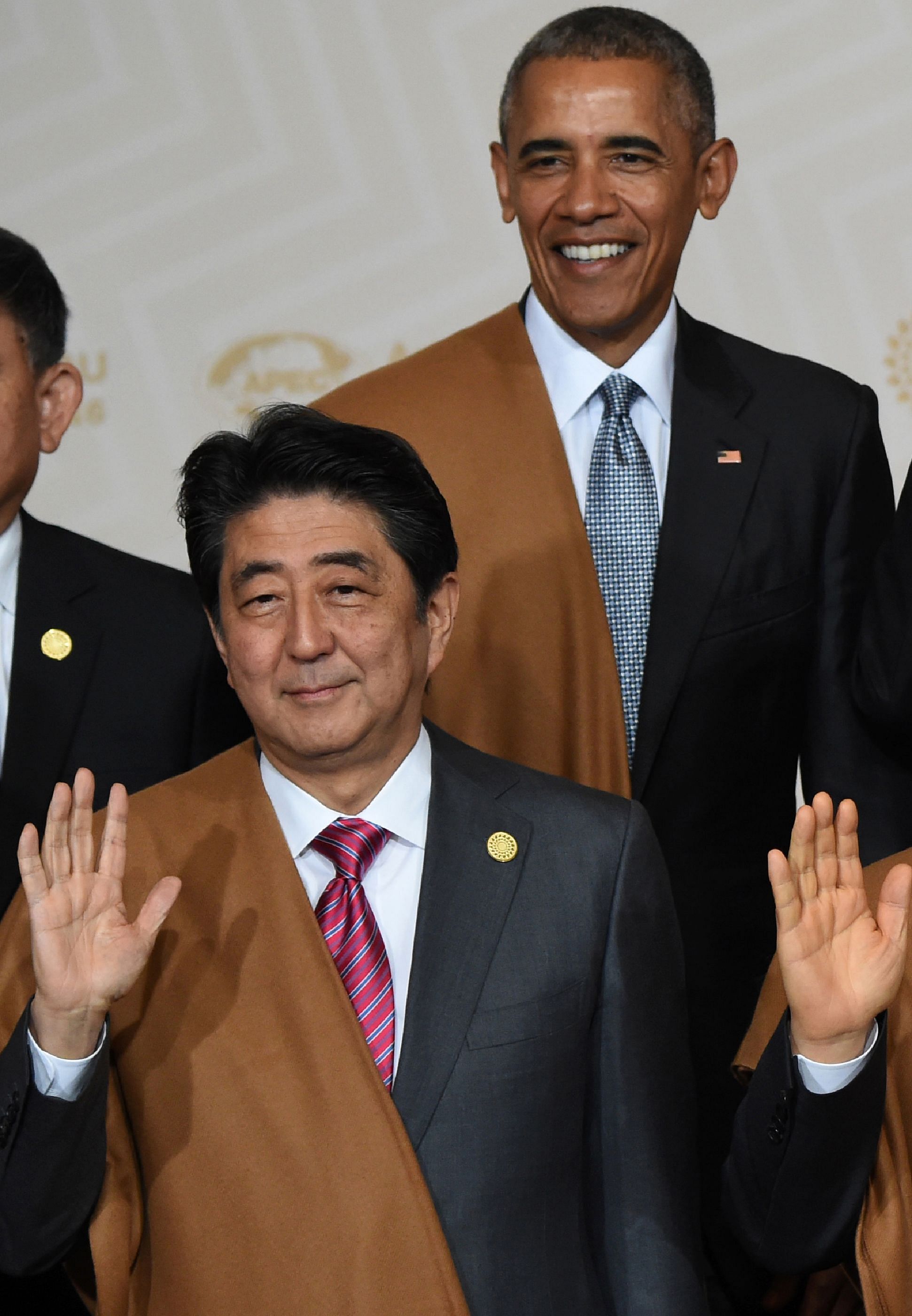Japanese Prime Minister Shinzo Abe will leave for Hawaii tomorrow for what is one of his most important foreign visits, where he will pray for the war dead at Pearl Harbour and meet United States President Barack Obama in their final summit.
On Dec 7, 1941, Japan launched a surprise aerial attack on the US Navy base at Pearl Harbour, killing 2,403 personnel and civilians and drawing America into World War II.
Mr Abe, who is known for his conservative, nationalist views, will be the first sitting Japanese leader to pay his respects at the USS Arizona Memorial, the only bombed warship that was not raised and is now the final resting place for many of the ship's 1,177 crew.
Mr Abe's visit comes after Mr Obama in May became the first incumbent US president to visit Hiroshima, which was pulverised by an atomic bomb in 1945, killing tens of thousands of people.
The visit is a symbolic way to showcase the enduring strength of the US-Japan alliance and demonstrate to the world the need to further boost the alliance with an eye on the future, officials of both countries said.

This will be crucial because the course of the alliance has been thrown into doubt by the foreign policy stance of incoming President Donald Trump, analysts say.
Like they did in Hiroshima, the two leaders will again stress the value of reconciliation at a ceremony on Tuesday (Wednesday morning, Singapore time) to remember those who perished in the strike on Pearl Harbour.
Nationalists in the US say the atomic bombings would not have occurred if Pearl Harbour had not been attacked in the first place.
Those in Tokyo argue that the atomic bombing of civilians is disproportionate in scale to the initial strike in Hawaii.
The meeting will end a chapter of an alliance that had grown from strength to strength after Mr Abe took office in December 2012.
Since then, Japan became one of the strongest partners in the US pivot to Asia to counter a rising China.
Beijing has reacted to the upcoming visit by saying: "If Japan wants to deeply reflect and genuinely apologise, China has many places where they can visit and ponder on the past." To this, a Japanese Foreign Ministry official said Mr Abe's prayers "are not limited to a particular group of war dead, but for all the war dead".
He noted Mr Abe's thoughts on the war in a speech last year to mark the 70th anniversary of the end of the war, when he expressed "deep remorse" and "utmost grief", and said future generations should not have to keep apologising for mistakes of the past.
"(It is) no less than that and no more than that," the official said.
Mr Abe is set to be in power until 2021, and hopes to secure the alliance under Mr Trump.
Sophia University political scientist Koichi Nakano noted: "Mr Abe fears that the US-Japan alliance that he has invested so much of his political capital in would start to drift."
He added: "Mr Abe is trying to make use of the historic site of Pearl Harbour to underscore the importance of US-Japan ties, not only to the outside world, but also to the President-elect."
Kobe University Professor Tosh Minohara noted Russia and China as creating an uncertain world order, and said: "The two leaders have to stand shoulder to shoulder and show the world that the alliance is still a viable alliance amid an uncertain world."
